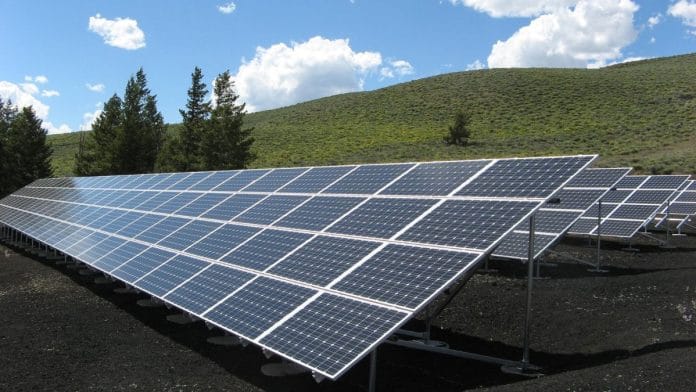New Delhi: India’s energy transition must be mindful of “geopolitical vulnerabilities”, given China’s significant role in supplying the world’s clean energy and mobility requirements, according to the Economic Survey 2024-25. While India’s green energy transition plans to combat climate change are “ambitious”, the “dependence on China-made goods” makes these plans complex and challenging.
In the section titled ‘Climate Transition, China and Geopolitics’, the survey makes it clear that 80-90 percent of the world’s solar energy modules, wind energy modules, and electric vehicle (EV) components are currently manufactured in China. Not just that, the survey acknowledges that raw materials like silicon ingots for solar panels and lithium-ion batteries for EVs, as well as manufacturing equipment, are concentrated in China, thus exposing India to ‘supply chain disruptions’ in several sectors.
This focus on reducing import reliance will also affect the incentives currently provided to EVs in India, the survey says.
“As the world navigates the challenges of climate change, the road to energy transition runs through China,” reads the report.
The priority for India, amidst China’s role as a ‘manufacturing colossus’ for green energy, is to reduce its dependence on imports while simultaneously promoting its domestic manufacturing capacity for solar panels and EVs.
The performance-linked incentive (PLI) schemes for solar panels, wind turbines, and battery storage will help with that, said the survey. However, it also highlighted that currently, the country has “near negligible capacity for key components like silicon, wafers and ingots” and “imports 75 percent of lithium-ion batteries”.
Along with improving domestic manufacturing of renewables, the Economic Survey also emphasised that coal would continue to be significant in India’s energy mix for energy security needs.
In a shift from last year’s Budget, which saw a focus on nuclear energy, this year’s Economic Survey laid out the challenges in its deployment. Public concerns about safety, the monopoly of a few countries over nuclear technologies, as well as the geographical concentration of uranium and other raw materials in a handful of nations, pose significant hindrances to nuclear energy in India, according to the survey.
Also Read: Researchers tracking pangolins stunned by rare sight—a rusty-spotted cat in Purulia forest
EVs and import reliance
One of the most important sectors in which the country plans to reduce import reliance on China is EVs, according to the Economic Survey. To reduce this reliance, the survey states that the extent to which EVs are incentivised “in the short run” needs to be examined as well.
“The import intensity of E-Vehicle production – especially from countries with whom India has persistent and large trade deficits – is very high,” says the Survey.
EVs, and especially EV batteries, require “six times more critical minerals” to produce, which are largely concentrated in China. The Asian country processes more than 60 percent of the world’s nickel, cobalt, and lithium, all essential to the EV industry. It also processes 90 percent of the world’s rare Earth minerals, which are crucial for EV manufacturing technology.
Moreover, the Economic Survey acknowledges that while India has its own FAME (Faster Adoption and Manufacturing of Hybrid and Electric Vehicles) policy and PLI schemes for auto components of EVs, manufacturers in India state that as demand for EVs grows, so will reliance on China—not just for raw materials but also for technical know-how.
There is a “dependence on overseas supply chains that electric vehicles entail, and will entail for quite some time to come”, reads the survey.
In this case, one of the proposed alternatives in the survey to reduce import dependence on China is to shift focus to public transport in India. The document states that Indian cities should prioritise metro connectivity, along with bus and rail networks, to both reduce imports and work towards net zero goals.
Along with this, the government will continue efforts to ‘indigenise’ technology for manufacturing EVs in the country. However, given the limited availability of land in the country and its vast size, public transport appears to be the answer for a “viable energy transition”.
“Therefore, national-level policies and local nudges must promote public transport rather than focusing on tailpipe emissions of private transportation,” reads the survey.
(Edited by Radifah Kabir)







Socialist M K Gandhi made the masses suffer by asking them to burn cheaper British clothes and buy costlier Indian clothes. Similarly, socialist India will say no to cheaper Chinese EVs and tell Indians to suffer with costlier Indian EVs.